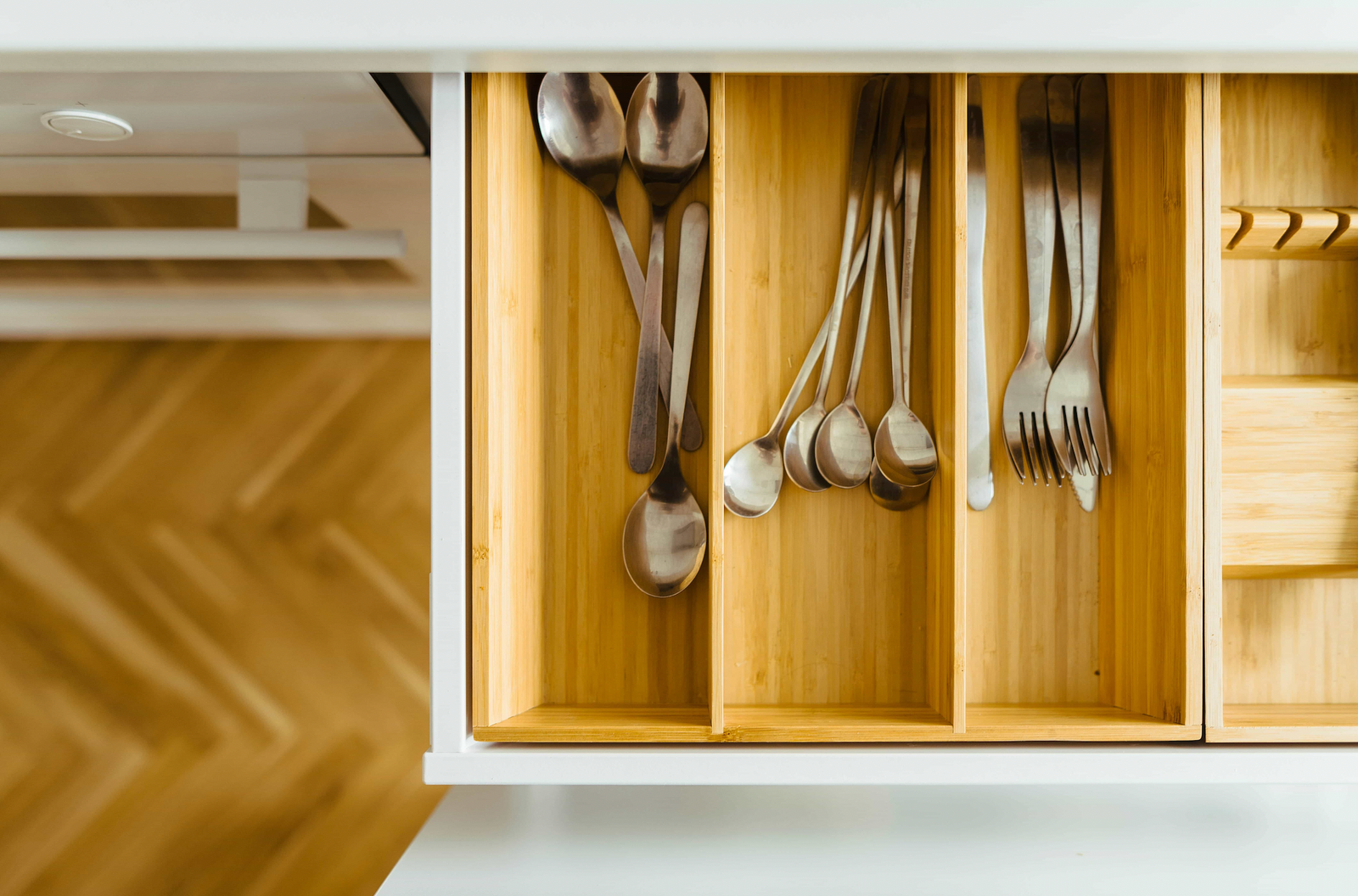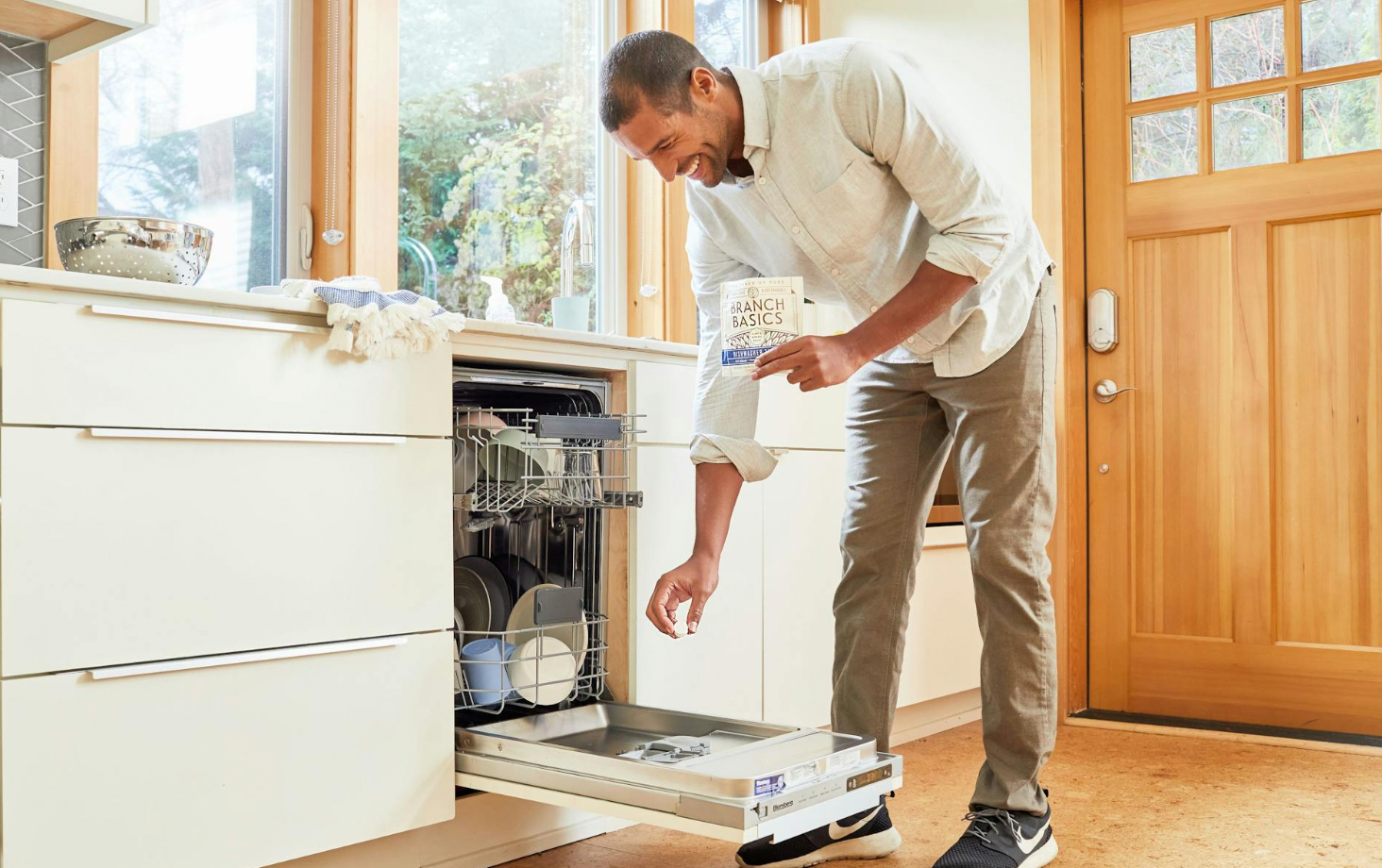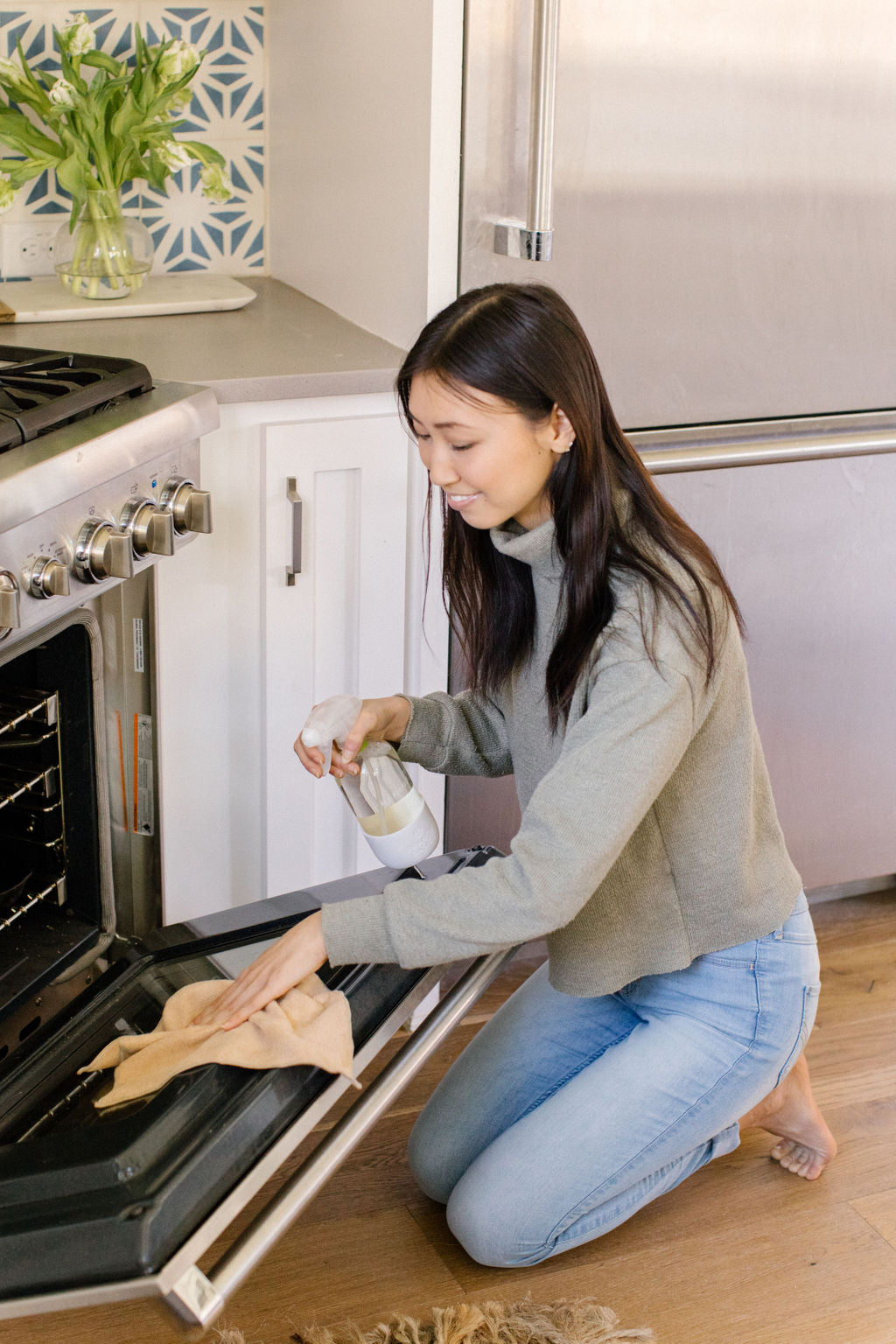How to Polish Silverware Naturally

Silverware has been a household staple for hundreds of years. Dating back to the 1700s, silverware was made of silver because of its natural antibacterial and disinfectant properties. A beautiful compliment to a plate of food, silverware can be durable and long-lasting if it is properly cleaned, polished, and maintained.
But over time, you may notice your silverware beginning to change colors – a chemical reaction known as tarnishing. To avoid and remove tarnish stains, regular use and cleanings are required.
Commercial silver polishes contain harmful and toxic chemicals that are unsafe for you and the environment. And since you’ll be using your silverware to eat with, it’s best to avoid these products and opt for an all-natural, environmentally-friendly cleaning method instead.
In this article, we’ll share several simple and safe methods for how to polish silverware naturally.
Common Causes of Silver Tarnish
Silver tarnish can be caused by a number of factors. The most common is when silver comes into contact with sulfur compounds found naturally in the air. Hydrogen Sulfide (H2S) reacts with silver to form silver sulfide, which causes the yellow, purple, and often black tarnish stains on silverware.
Other common causes of silver tarnish include:
- Exposure to different pH levels in human skin
- Exposure to heat and humidity
- Wool
- Latex and rubber bands
- Chlorine
- Acidic and sulfur-rich foods like eggs and certain meat products
The best way to prevent silverware from tarnishing is to clean and polish by hand using a natural, human-safe solution. Then, store in a proper container away from air, light, heat, and humidity.
Related Read: Best Human-Safe Kitchen Cleaning Tips for 2023
How to Polish Silverware With Baking Soda
Ready to get started?
First, let’s explore two examples of how you can use baking soda to polish silverware naturally.
Here’s what you’ll need:
- Baking soda
- Water
- Large bowl
- Microfiber cloths
- Aluminum foil (used only for the “Aluminum Foil Method”)
Aluminum Foil Method
Almost magically, this simple and hands-off concoction of baking soda, water, and aluminum foil, makes dulled and tarnished silverware polish up like new.
Here’s how:
- Line a large bowl with aluminum foil.
- Place silverware into the bowl, ensuring it touches the aluminum foil.
- Bring a pot of water to a boil. Slowly pour the boiling water over the silverware until it is completely covered.
- Add 2 tablespoons of baking soda to the water until it begins to bubble.
- Let the silverware soak in the solution for about 30 minutes.
- Remove each piece from the bowl and rinse well.
- Dry with a microfiber cloth. Use another clean and dry microfiber cloth to buff the silverware to reveal its beautiful shine.
Cloth Method
If you have a few pieces to tackle, here’s how to polish silverware naturally with just a microfiber cloth and baking soda paste:
- In a bowl, combine equal parts baking soda with warm water. Stir to form a baking soda paste.
- Dip a clean microfiber cloth into the paste.
- Rub the paste onto the silverware, focusing on tarnished and dirty areas.
- Let the paste sit for about 30 to 60 seconds on lightly tarnished silverware. Leave for up to 10 minutes on heavily tarnished and soiled silver.
- Thoroughly rinse in lukewarm water.
- Dry with a microfiber cloth. Use another clean and dry cloth to polish.
See: 8 Natural Alternatives to Dish Soap & Dishwasher Detergent for more natural and healthy dishwashing options.
How to Polish Silverware With Lemon Juice
The citric acid found in lemon juice effectively removes oxidation and tarnish spots from silverware. It can also remove hard water stains, improving the appearance and shine of each piece.
Choose between the “Lemon Juice and Salt” method or the “Lemon Juice and Powdered Milk” method.
Here’s what you’ll need:
- Fresh lemon juice
- Water
- Large Bowl
- Microfiber cloths
- Salt
Or…
- Instant powdered milk
Lemon Juice and Salt
Fresh lemon juice and salt work together to safely and naturally scrub away dirt, grime and tarnish from silverware.
Here’s how:
- In a large bowl, add 1 tablespoon of fresh lemon juice, 4 tablespoons of salt, and hot water. Mix well until the salt has dissolved.
- Slowly lower the silverware into the mixture and let soak for about 5 minutes.
- Remove and rinse each piece in lukewarm water.
- Rub any tarnished spots off with a clean microfiber cloth.
- Dry well before storing.
Lemon Juice and Powdered Milk
It may seem odd, but mixing lemon juice with powdered milk can be used to clean and polish silverware naturally. The lactic acid found in the powdered milk breaks down and removes tarnish stains.
Here’s how to use lemon juice and powdered milk to polish silverware:
- Mix 1 tablespoon of fresh lemon juice with ½ cup powdered milk, and 2 cups of warm water in a bowl.
- Place dirty silverware into the mixture to sit overnight - about 12 hours.
- Remove silverware and rinse well in cool water.
- Dry and polish with a clean microfiber cloth.
Discover more natural and DIY cleaning options in: 20+ Best Human-Safe Cleaning Products (That Actually Work)
How to Polish Silverware With Branch Basics
Cleaning and polishing silverware with an all-natural dish soap and water is the easiest method available. Use a safe dish soap, like Branch Basics, to keep your silverware shining between each use.
Here’s what you’ll need:
- Branch Basics All-Purpose or Foaming Wash
- Water
- Large bowl
- Microfiber cloths
How to polish silverware naturally using Branch Basics:
- Add dirty and tarnished silverware to a large bowl.
- Cover with warm water and add a few squirts of All-Purpose or Foaming Wash.
- Using a clean microfiber cloth, rub silverware with the soapy solution.
- Rinse well in cool water.
- Dry and lightly buff with a microfiber cloth until your silverware glistens.
Branch Basics’ natural kitchen cleaning power doesn’t stop there. Discover more in Cleaning Stainless Steel Naturally: 7 Simple Methods.
Tips for Maintaining Silverware
Regularly cleaning and polishing your silverware is just the beginning. To care for and prevent tarnishing, silverware must also be properly stored and kept from tarnish-causing substances.
Here are some tips for maintaining your silverware:
For proper storage:
- Before storing, always clean, dry and polish each silverware piece.
- Store in a cool, dry place. Airtight containers or anti-tarnish bags made from tarnish-resistant silversmith’s cloth are best.
- Avoid using rubber bands and newspapers for storage. Instead, roll each piece individually in unbleached organic cotton muslin or acid-free tissue paper.
- Don’t let silverware touch, as this can lead to scratching.
- Add a piece of chalk to the storage bin or drawer. The chalk will absorb moisture and sulfur, preventing the silverware from tarnishing.
And, avoid exposure to tarnish-causing substances such as:
- Highly-abrasive cleaning products like bleach and chemical-based dish detergents. Opt for a natural, safe cleaner, like Branch Basics, instead.
- Air, light, heat, and humidity, as all of these can cause silver to tarnish faster.
- After eating acidic and sulfuric foods, wash and polish immediately. Such foods include eggs, vinegar-based salad dressings, and brussel sprouts.
Embrace Home-Safe Cleaning With Branch Basics
Now that you know how to polish silverware naturally without the use of harmful chemicals, let’s talk about our human-safe cleaning products!
Keep silverware and other kitchen items, like your blender and stainless steel pots and pans, clean with Branch Basics – a plant-based, eco-friendly, multi-purpose, natural cleaning solution safe for any cleaning task when diluted with water.
Check out our Branch Basics Premium Starter Kits, which comes with our all-in-one Concentrate, Oxygen Boost, and five refillable bottles (available in glass or plastic) to make All-Purpose, Bathroom, Foaming Wash, Streak-Free, and Laundry.
For dishwasher-safe kitchen items, we also offer human-safe, pure, powerful, and plastic-free Dishwasher Tabs.
For more tips on natural cleaning around the kitchen, check out:

Marilee Nelson
Marilee Nelson is an Environmental Toxins expert who has spent nearly 30 years advocating for the chemically-sensitive and chronically-ill. She is a Board Certified Nutritionist, Certified Bau-Biologist and Bau-Biology Inspector and specializes in Food As Medicine. She has helped thousands of families and individuals identify, heal and recover from toxic exposures and is on a mission to revolutionize the way American families view their health.








